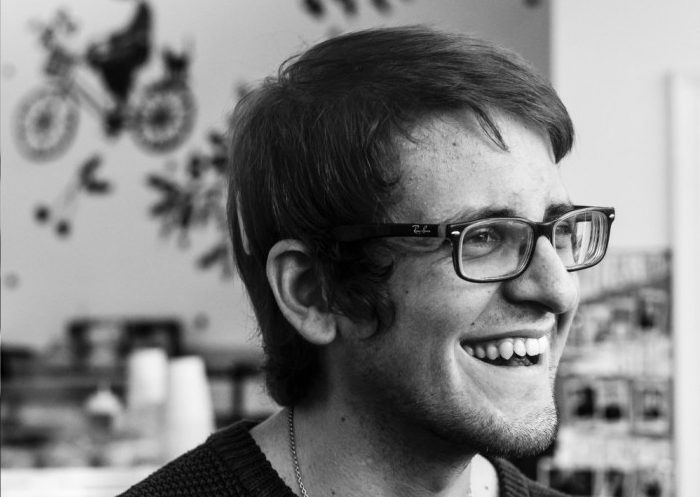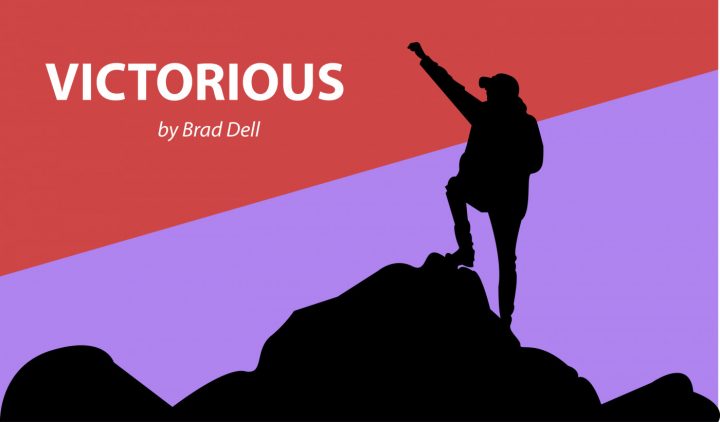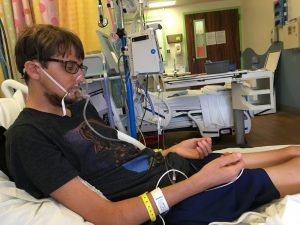A Recipe for Peace

(Photo by Kathleen Sheffer)
Second in a two-part series about the role of anger in a CFer’s life. Last week, I wrote about a lifetime of anger because of cystic fibrosis. The fury boiled over during an episode of ICU psychosis and septic shock.
I finally snapped out of psychosis, greeted back to Earth by soiled linens, wide eyes. Loved ones tiptoed cautiously around me, like the bundles of IV lines dangling near the floor were tripwires — and I was the bomb. Understandable, having just spent four days going ballistic. But I was more benign than ever before. Every drop of rage had squeezed out from my pores during those four days of sweat and tears.
Mom: “You almost died.” I almost died? I actually laughed. “Whaaat? Whoa!” I almost died? No one else laughed. I almost died? How do you respond to that? I almost died? It wasn’t a joke. It was reality. I almost died. So that’s how death happens, huh? If I died, who was I?
It was jarring to realize I’d always been painfully aware of death’s stalk, yet I never lived life like each day might be my last. We hear that all the time, it’s a major cliche: “Live every day like it’s your last.” But, please, sit and think on that phrase. Really think about it. Today. Are you living it like it’s your last?
What were my last actions? When was the last time I said something meaningful to other people?
Wanna know what I did on the day that could have been my last, before the septic shock occurred? I watched reruns of Food Network while griping at my parents for not taking my disease seriously. I don’t remember my last words to my best friend or girlfriend. I’d cut off contact with friends because I was so bitter about recently becoming deaf. I wasn’t living. I was maintaining — and barely so.
My life felt hollow, insignificant. I wasted so much energy on panicking about this disease killing me, that I forgot to live. Sure, I ate delicious food when my appetite allowed, had a beautiful long-term relationship, worked jobs I enjoyed, laughed plenty. But I couldn’t think of ways I positively affected others. I didn’t see love exuded in my life.
Instead, I had angry bones, angry eyes, angry me. The rage was lead in my veins, and it corrupted my health more than bacteria ever did. My girlfriend (at the time) later told me she was haunted by a hateful glint in my eye from the days of psychosis — blue irises overtaken by pitch black, dilated pupils. There’s a photo she took of me that I don’t want to share — a glare that should have shattered her camera lens.
The anger did return, but in a different way — I saddled it like a broken stallion. I weaponized the fury to commit a murder of passion, to destroy this disease that held me hostage for two decades — plugged my airways with sticky fingers, stabbed my psyche with frenzied tendrils of anxiety.
Side note: Anger can be useful to the chronically ill. But we need to ensure the anger is used to motivate us to fight the disease, rather than fight those around us. If your loved one is infuriated because of disease, do not tolerate them using you as a scapegoat for their problems.
Embracing peace
Once the disease was “defeated” through a lung transplant, I swore I was finished with my anger. So far, so good. There’s no single secret to putting ice on a lifetime of anger. Rather, it’s a combination of tiny and big things working in cohesion to form a better me.
For Christmas in 2016, I asked for “relaxing things,” thus embarking on a journey to “Zen.” I use back massage devices, smell lavender oil, and drink chamomile tea. Every day, I meditate (using guided apps like Calm), exercise, find opportunities to view art, and read meaningful poetry.
I’m intentional in love: complimenting friends and strangers, mining deep conversations, holding eye contact, telling people how valuable they are, giving liberally to charitable causes, tightly hugging my parents to squeeze out memories of me wounding them.
And I write. Striking emotions to paper is cathartic. I vent, reflect, and discover meaning in awful events: “Cool, more content for my memoir.”
Above all, I am faithful. Believing there is purpose to my struggles and praying for wisdom, love, and patience. I pray a lot.
The anger I wrote about in last week’s column feels foreign — mere memory. I like that. Cystic fibrosis doesn’t afford the security of longevity. I strive to live deliberately and joyfully, to feel satisfied leaving Earth when the time comes, to leave believing I am beloved, and loving others.
I’ll leave you with a poem. “Late Fragment,” written by Raymond Carver and inscribed on his tombstone:
“And did you get what
you wanted from this life, even so?
I did.
And what did you want?
To call myself beloved, to feel myself
beloved on the earth.”
***
Note: Cystic Fibrosis News Today is strictly a news and information website about the disease. It does not provide medical advice, diagnosis, or treatment. This content is not intended to be a substitute for professional medical advice, diagnosis, or treatment. Always seek the advice of your physician or other qualified health provider with any questions you may have regarding a medical condition. Never disregard professional medical advice or delay in seeking it because of something you have read on this website. The opinions expressed in this column are not those of Cystic Fibrosis News Today, or its parent company, Bionews Services, and are intended to spark discussion about issues pertaining to cystic fibrosis.










Kathleen
Thank you Brad Bell, for sharing your struggle with us. My daughter also has cf and anger issues. It is helpful to me to read about this from an adult's perspective and I look forward to reading more.I agree about having faith and seeing things through a faithful perspective. Very well written article. May God Bless you.